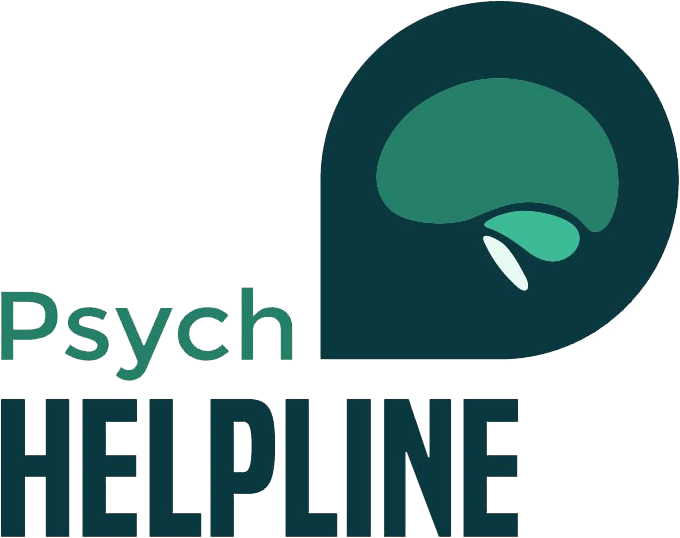Table of Contents
Forgiveness isn’t an abrupt act. Someone who is in the process of learning how to forgive and forget can understand this in a better manner. It’s a continuous process of taking leaps of faith every day. At the end of the day, you’re doing it all for your sake way more than anyone else’s. If you’re someone who has been torn down by someone close to you years ago or quite recently, you might be harboring un-forgiveness too. It’s understandable because some matters can be just too hard to let go of. It could be something as common as a finance-related conflict with your close friend or something as life-changing as the childhood emotional neglect you once faced from your parents.
The bottom line is, forgiving someone can be very hard. Even if you find the courage to let go, forgetting the pain that matter caused you can be even harder. Additionally, self-forgiveness can be way harder than forgiving someone else considering how most of us aren’t that much self-empathetic.
So, how does one actually forgive and forget for their own sake? Here are some life-changing tips that can help you alter your mindset;
Forgive & Forget: How Can You Truly Move on?
Re-establishing Communication
To forgive someone and to forget the matter as a whole, you first need to trace back your steps. What we’re referring to here, is the reestablishment of broken communication. You’ve got to talk to that one person who wronged you a while ago. It can help you reinvestigate the reasons why you were so offended by their actions.
No matter how old that matter is if it continues to haunt you, you deserve the right to open dialogue once again. Additionally, it totally depends on the other person whether or not he or she might want to revisit that matter or not. Thus you must respect their decision and stop poking into the matter if the response doesn’t appeal to you.
Reminder reestablishing communication doesn’t mean that you have decided to forgive that particular person or forget that matter. It’s simply a setting stone that lays the foundation for the events to come. Whether or not the re-establishment of communication will lead to something positive or not is another matter.
Compare & Draw The Conclusions
Now, let’s assume that the walls drawn from both ends have fallen. If both parties are willing to talk things out, what should be the next step? Once you get the red light from the other end, you should be willing to listen to their side of the story. This is an open opportunity for you to note some important things.
First and foremost, notice whether or not an apology has been made from the other end or not. If there are any efforts in that regard, does it seem genuine to you? Compare the past and present demeanor of the person who wronged you. Before you forgive them and re-establish a bond with them, you need to know whether it’s all worth it or not. If they haven’t changed at all, then they’re more likely to hurt you once again.
On the contrary, if you’re trying to forgive someone who hasn’t made any conscious efforts to apologize, slip the focus from them into yourself. It’s all about you, so what you wish to do is the only thing that matters. It also gives you a chance to reexamine your feelings and to realize that you’re not that offended by that mistake anymore.
If you’re trying to forgive yourself for a past mistake compare the person you are now with the one who committed that mistake. You’ve shown growth and you deserve the right to be forgiven by yourself considering you’re a whole new person now.
Look At Matters From A New Perspective
Everything’s a learning experience. On your journey to forgive and forget all sorrows or mistakes, try to find light in the darkest rooms. If you’ve been wronged by someone you trusted, it’s a wake-up call. Twisting the perspective and looking at that bad experience from a new angle can give you the courage to move on.
Try to look for the lesson that a particularly bad person taught you by cheating on you. Did you gain more resilience? Did it polish your emotional strength? Soon, a financial disaster caused by your own mistake will suddenly start seeming like a blessing in disguise. It’ll soon turn into a learning curve that helped you learn something new about the business you’re trying to run.
Therapy
If a conflict from the past or someone else’s wrongdoing is too hard to let go of, attending therapy can help. Not only does therapy help in building resilience, but it can also help you in exploring a closed chapter in a much more emotionally stable state. Furthermore, therapy promotes radical acceptance. Consequently, clients can understand that although they don’t have any control over the actions of others, they can still control how they act. This aspect of therapy can also help promote empathy and may push you more towards forgiving someone’s wrongdoings.
Attending therapy can also make you more empathetic and help you realize that the world doesn’t run according to the rules you’ve set. So, if someone else tends to betray the rules you’ve set, you’ll be more accepting and forgiving of their actions. Lastly, talk therapy can also open doors to release the negative feelings you’ve been harboring. In this way, you can get the emotional release you need to start reconsidering forgiveness towards yourself or someone else.
Why Is It So Hard To Forgive Yourself?
So many of us struggle with self-forgiveness. It’s an idea that we simply can’t pull off no matter how hard we try. One of the biggest reasons that stop us from forgiving ourselves is self-loathing. People tend to loath themselves because of something traumatic they encountered in their childhood or because of a particular trait they don’t appreciate about themselves. Self-loathing can be based upon any non-standard physical attributes such as weight, physical complexion, height, etc. Furthermore, some people tend to self-loathe because that is something they have seen since they were young. Children that grow up in households where forgiveness isn’t a norm or parents are too critical also tend to be more critical of themselves. Thus they find themselves to be the big bad villain in every situation and don’t seem to be that forgiving.
3 Reasons Why It’s Necessary To Forgive & Forget
Cultivation Of Broken Bonds
No matter how complicated things get some bonds are never meant to be broken. If you truly feel like you want to rejuvenate old relationships with a friend or a relative then forgiveness can pave the way for that. A great example of that would be people that are estranged from their parents, siblings or other close family members due to a particular conflict. If you feel like you’ve been wronged in the past by a close relative who has since apologized and made up for his mistakes perhaps it’s the right time to move on.
In this case, it’s an absolute necessity to forgive and forget because only then you will be able to re-cultivate those old broken bonds in their true sense. Forgiving that person and forgetting that matter is an absolute necessity because only then you will be able to stop yourself from bringing up the past. Furthermore only then that relationship will feel like it’s been given a fresh new start.
It’s An Act Of Self Love
For most of us practicing self-love might mean taking care of yourself physically. Of course, that is true to some extent. Setting up a hot bath for yourself does come in the definition of practicing self-care and self-love. Yet at the same time that particular definition of self-love expands to taking care of yourself emotionally and mentally as well. If you’re withholding things to yourself and practicing unforgiveness you are more likely to struggle with a mindset that always keeps you in a loop.
Forgiveness is an act of self-love. It almost feels like a gift to yourself as you’ll be freeing yourself from the shackles of old complexities. Whether you are forgiving someone else or yourself, you’ll be practicing self-love by giving preference to your sanity above all.
Rejuvenation Of Mind & Body
You might be harboring unforgiveness in your heart because of a very particular reason that might be justified according to you. Yet at the same time, you can’t deny that it does take a toll on your mind and body at the same time. Harboring un-forgiveness in your heart can have psychological and physiological implications that might permanently tarnish your health. The stress related to an unforgiven individual or matter can cause your blood pressure to rise. It can lead to extreme stress and in severe cases, insomnia.
Hot-headed individuals might find this situation even harder to cope with. Additionally, someone struggling with inherent cardiovascular diseases might also be on the sharper edge of the seat in this context. Thus the stability of your mental peace and physiological health depends on how forgiving you can be in the long run. It can significantly lower down your anxiety levels and reduce the chances of having high cholesterol levels.
Studies conducted in the past have shown that people who hold grudges tend to have weaker immune systems. Thus harboring more empathy and possessing a forgiving nature can truly protect you from ailments. Lastly, people who tend to stray away from holding grudges are usually happier.

Forgive & Forget: 3 Health Habits That Promote Self-forgiveness
Acceptance and denial
Before you actually start forgiving yourself you’ve first got to admit your mistake. This means that you need to escape from the shackles of denial and actually admit your fault. Accepting your mistake is the hard part and once you are over it you can move over to healing. Yes skipping your mother-in-law’s annual birthday dinner might not be your proudest moment but you can’t use white lies at your disposal to avoid guilt. To forgive yourself for missing out on important family events, admit that you’ve done something wrong.
Treat yourself the way you would treat others
If you have an empathetic nature you are more likely to apologize to someone else for a mistake you made. But are you self empathetic? Would you apologize to yourself the same way you would apologize to someone else? Right now grab a pen and paper and write an apology note to yourself. shut down all your emotional baggage and lay down the reasons behind committing that mistake. This is a great way of finding closure and promoting self-forgiveness.
Hold Your Inner Critic Accountable
Who is your biggest critic? The answer to this question is You. Those inner monologues that tend to be super critical on your own, can be the biggest hurdle stopping you from forgetting and forgiving. Whenever you feel like you’re being too harsh on yourself, note that down in a journal. Once you jot down what the harsh and critical voice inside you is saying, draw a line. On the other side of the line, jot down rational, empathetic things to yourself. This habit is harder to pick on and might require time but it actually works.
Final Words
Let’s take a look on the flip side. Now that we’ve spent a decent amount of time on this discourse it is important to admit that sometimes you don’t have to forgive someone. There are particular situations where no one deserves forgiveness or a moment of reconciliation. These particular contexts may include verbal, sexual, or physical abuse. You don’t have to forgive your abuser unless you actually feel like you can forgive them. There are no compulsions and you don’t have to act on the impulses of a friend or relative in this regard.







